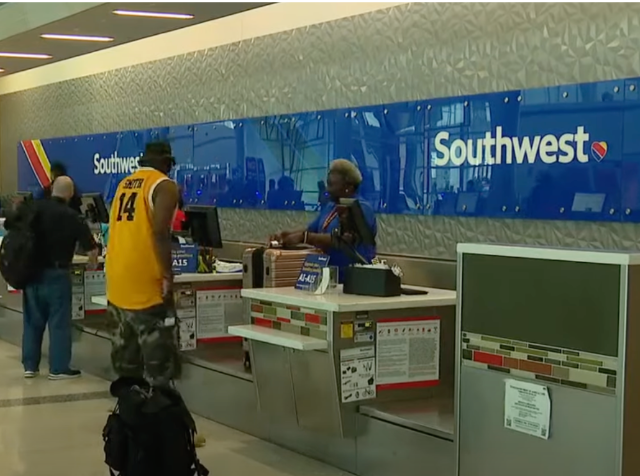News
Transport Department Sues Southwest Airlines and Fines Frontier Airlines Over Chronically Delayed Flights

The Department of Transportation (DOT) recently filed a lawsuit against Southwest Airlines while fining Frontier Airlines for their chronically delayed flights. These legal actions come in response to repeated delays that disrupted hundreds of flights and passengers’ lives. While delays are a common inconvenience for air travelers, the DOT's focus on “chronically delayed flights” highlights a deeper issue that extends beyond mere scheduling problems.
Chronically delayed flights, as defined by the DOT, are those that operate at least 10 times a month and arrive more than 30 minutes late over 50% of the time. These delays include cancellations and diversions. For Southwest, two flights on routes between Chicago and Oakland, and Baltimore and Cleveland, were delayed 180 times over five months in 2022. Frontier faced fines for multiple delays, with the DOT citing their repeated failure to meet reasonable scheduling standards.
Flight Delays Harm Passengers
Delays disrupt more than just travel plans; they affect personal and professional commitments, lead to financial losses, and damage public trust in airlines. Passengers caught in chronic delays often face unexpected expenses, including meals, accommodations, and rebooking fees. For businesses, delayed flights can result in missed meetings, reduced productivity, and logistical headaches.
From a regulatory standpoint, the DOT emphasizes that unrealistic scheduling by airlines is both deceptive and anticompetitive. Airlines that knowingly market flights with an unrealistic promise of punctuality gain an unfair advantage in attracting customers, only to leave them stranded. Southwest, for example, was responsible for more than 90% of the delays on its problematic routes, underscoring the airline’s failure to adjust its schedules despite clear evidence of recurring issues.
The lawsuit and fines aim to hold airlines accountable for ensuring their schedules are realistic and reflect actual operational capacities. DOT Secretary Pete Buttigieg stated, “Today’s action sends a message to all airlines that the Department is prepared to go to court in order to enforce passenger protections.”
The Broader Impact of Chronically Delayed Flights on Airlines and Passengers
The financial repercussions of chronically delayed flights extend beyond fines. Southwest could face penalties exceeding $2.2 million if found guilty of violating DOT regulations. Similarly, Frontier was fined $650,000, half of which will be suspended if the airline avoids chronic delays for the next three years. These fines serve as a wake-up call for the industry, highlighting the need for proactive measures to maintain scheduling integrity.
Moreover, public perception plays a significant role. Passengers are increasingly vocal about their dissatisfaction, with many turning to social media to share their frustrations. A damaged reputation can lead to a loss of customer loyalty, which is especially critical in an industry where competition is fierce.
Solutions to Avoid Chronic Delays
Airlines can adopt several strategies to minimize delays and enhance operational efficiency. First, leveraging advanced scheduling algorithms can help ensure flight plans are realistic and account for potential disruptions such as weather or air traffic congestion. Airlines should also allocate additional resources to ground operations, including crew availability and maintenance checks, to reduce turnaround times.
Enhanced communication with passengers is equally important. Keeping travelers informed about delays in real-time and offering compensation proactively can mitigate dissatisfaction. Additionally, collaborating with airport authorities to streamline boarding and deboarding processes can significantly improve punctuality.
Another critical aspect is the adoption of data-driven performance tracking. By analyzing past flight records and identifying patterns in delays, airlines can pinpoint problem areas and implement targeted improvements. For instance, adjusting crew schedules or optimizing aircraft utilization can address recurring bottlenecks.
Airline Passengers Deserve Better
The DOT’s actions against Southwest and Frontier underscore the need for airlines to prioritize passenger experience. Chronic delays disrupt lives, erode trust, and strain the industry as a whole. By enforcing stringent standards, the DOT aims to protect travelers from the inconvenience and financial strain caused by unrealistic scheduling practices.
For passengers, understanding their rights is crucial. In cases of chronic delays, travelers are often entitled to compensation or alternative arrangements. Advocacy for fair treatment can push airlines to prioritize operational efficiency and maintain accountability.
Do you believe the DOT’s legal actions against airlines with chronically delayed flights will lead to better service for passengers?



